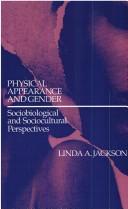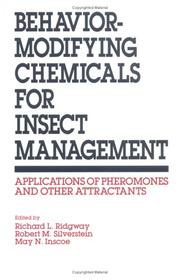| Listing 1 - 4 of 4 |
Sort by
|
Article
Abstract | Keywords | Export | Availability | Bookmark
 Loading...
Loading...Choose an application
- Reference Manager
- EndNote
- RefWorks (Direct export to RefWorks)
Gerbils learned to approach a spatial-olfactory stimulus that signaled access to their pairmate. Experiments 1 and 3 used a discrimination procedure in which 1 conditioned stimulus (the CS+) was presented immediately before access to the pairmate and another (the CS-) was presented alone. Both male and female gerbils came to approach the CS+ sooner than the CS- and spent more time near the CS+ than the CS-. Discrimination learning was facilitated by making the CS+ and CS- spatially distinct (Experiment 3). Learning also was demonstrated in male gerbils, using a between-subjects design with a single CS. Pairing the CS with the opportunity for social interact ion resulted in greater approach to the CS within 10 trials than presenting the CS and social opportunity in an unpaired fashion (Experiment 2). These findings demonstrate social-affiliative learning in the Mongolian gerbil. Similarities and differences between these findings and sexual conditioning effects in other species are discussed
Access. --- Attractant. --- Behavior. --- Conditioning. --- Copulatory-behavior. --- Cs. --- Design. --- Discrimination. --- Experiment. --- Experiments. --- Female mice. --- Female. --- Gerbil. --- Gerbils. --- Learning. --- Male-rats. --- Male. --- Meriones unguiculatus. --- Meriones-unguiculatus. --- Mongolian gerbil. --- Mongolian-gerbil. --- Odors. --- Quail coturnix-japonica. --- Responses. --- Secretion. --- Sexual experience. --- Sexual. --- Social. --- Stimulus. --- Time. --- Unguiculatus.

ISBN: 0585064091 9780585064093 079140823X 143840767X Year: 1992 Publisher: Albany : State University of New York Press,
Abstract | Keywords | Export | Availability | Bookmark
 Loading...
Loading...Choose an application
- Reference Manager
- EndNote
- RefWorks (Direct export to RefWorks)
Interpersonal attraction. --- Beauty, Personal --- Sex differences (Psychology) --- Face. --- Feminine beauty (Aesthetics) --- Stereotypes (Social psychology) --- Beauty --- Sex Attractants. --- Body Image. --- Interpersonal Relations. --- Psychology, Social. --- Psychology, Perceptual --- Social Psychology --- Perceptual Psychology --- Gender Issues --- Husband-Wife Communication --- Partner Communication --- Social Relationships --- Communication, Husband-Wife --- Communication, Partner --- Communications, Husband-Wife --- Communications, Partner --- Husband Wife Communication --- Husband-Wife Communications --- Interpersonal Relation --- Partner Communications --- Relation, Interpersonal --- Relations, Interpersonal --- Relationship, Social --- Relationships, Social --- Social Relationship --- Social Behavior --- Friends --- Emotional Intelligence --- Body Representation --- Body Schema --- Body Identity --- Body Images --- Body Representations --- Body Schemas --- Identity, Body --- Image, Body --- Representation, Body --- Schema, Body --- Physical Appearance, Body --- Self Concept --- Faces --- Sex Attractant --- Sex Pheromone --- Copulins --- Pheromones, Sexual --- Sex Pheromones --- Attractant, Sex --- Attractants, Sex --- Pheromone, Sex --- Pheromones, Sex --- Sexual Pheromones --- Mental stereotypes --- Stereotype (Psychology) --- Stereotyping (Social psychology) --- Social psychology --- Attitude (Psychology) --- Rigidity (Psychology) --- Ideal beautiful women --- Aesthetics --- Women in art --- Human face --- Head --- Pathognomy --- Physiognomy --- Sex (Psychology) --- Attraction, Interpersonal --- Interpersonal relations --- Psychological aspects. --- psychology.

ISBN: 0824781562 9780824781569 Year: 1990 Publisher: New York, NY : Marcel Dekker,
Abstract | Keywords | Export | Availability | Bookmark
 Loading...
Loading...Choose an application
- Reference Manager
- EndNote
- RefWorks (Direct export to RefWorks)
Insect sex attractants --- Insects --- Semiochemicals --- Insectes --- Sémiochimiques --- Behavior --- Attractifs sexuels --- Moeurs et comportement --- Semiochemicals. --- Insect sex attractants. --- Behavior. --- Phéromone --- Pheromones --- Insecte nuisible --- Pest insects --- forests --- Horticulture --- horticulture --- Plante de culture --- Crops --- Denrées entreposées --- Stored products --- Ravageur des denrées entreposées --- Stored products pests --- Attractif sexuel --- Sex attractants --- Insecta --- Comportement sexuel --- Sexual behaviour --- Lutte biologique --- Biological control --- Formulation --- formulations --- Lutte antiravageur --- pest control --- Entomologie --- Entomology --- Comportement --- Behaviour --- -Semiochemicals --- Chemosignals --- Biochemistry --- Chemicals --- Hexapoda --- Pterygota --- Arthropoda --- Sex attractants, Insect --- Insect baits and repellents --- Sémiochimiques --- Insect behavior --- horticulture. --- Insects - Behavior. --- Pheromones(Insect-) --- Insect management --- Pheromone synthesis --- Insect sex attractant as insecticide --- Crop pest control --- Forest pest(Insect) --- Pest control --- Behaviour-modifying chemical
Book
ISBN: 0262345854 0262535025 9780262345859 9780262535021 0262345862 Year: 2018 Publisher: Cambridge, Massachusetts : The MIT Press,
Abstract | Keywords | Export | Availability | Bookmark
 Loading...
Loading...Choose an application
- Reference Manager
- EndNote
- RefWorks (Direct export to RefWorks)
How the presence of the tsetse fly turned the African forest into an open laboratory where African knowledge formed the basis of colonial tsetse control policies.
Tsetse-flies --- Traditional ecological knowledge --- Indigenous peoples --- Knowledge management --- Control --- History. --- Social aspects --- Ecology. --- Ecology --- Management of knowledge assets --- Management --- Information technology --- Intellectual capital --- Organizational learning --- Aboriginal peoples --- Aborigines --- Adivasis --- Indigenous populations --- Native peoples --- Native races --- Ethnology --- Indigenous ecological knowledge --- Indigenous environmental knowledge --- T.E.K. (Traditional ecological knowledge) --- TEK (Traditional ecological knowledge) --- Traditional environmental knowledge --- Ethnoscience --- Experiential learning --- Biopiracy --- Glossina --- Flies --- Ethnoecology --- Human ecology --- SCIENCE, TECHNOLOGY & SOCIETY/General --- SCIENCE, TECHNOLOGY & SOCIETY/History of Science --- SCIENCE, TECHNOLOGY & SOCIETY/History of Technology --- tsetse fly --- Zimbabwe culture --- Blood --- Mobilities --- mobility of knowledge --- mobility studies --- Africa studies --- global south --- colonial studies --- Pests --- Dehumanization --- thingification --- environmental studies --- environmentalism --- De-Intellectualization --- Chepfu --- Knowledge --- knowledge production --- Eugenics --- colonialism --- racism --- imperialism --- Bantu Studies --- African Studies --- Africans as objects of study --- Négritude --- Self-reintellectualization --- Trypanosomiasis --- parasitization --- attractant studies --- Gomarara --- cancer --- Chemoprophylaxis --- chidzimbahwe --- vedzimbahwe --- ndedzi --- mhesvamukono --- Mhesvi --- Vachena --- Vatema --- Hutachiwana
| Listing 1 - 4 of 4 |
Sort by
|

 Search
Search Feedback
Feedback About
About Help
Help News
News